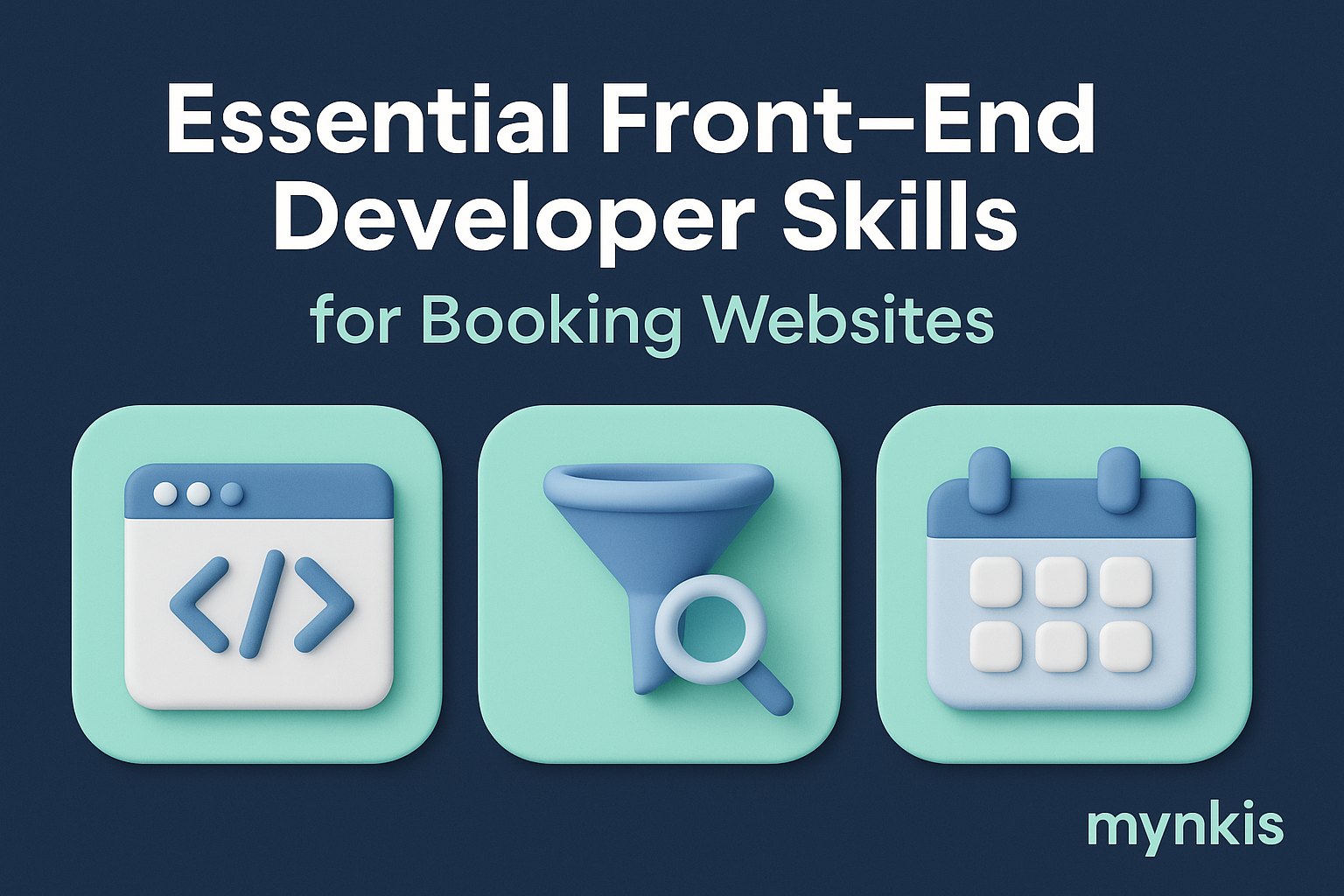Schedule a Demo
At the core of every successful booking-enabled website lies a deep understanding of user-centric design. In the realm of custom software development, the front-end developer's role is crucial in crafting an intuitive user interface (UI). Imagine the perfect scenario: potential customers arrive at your site and find the booking process smooth and intuitive. Achieving this isn't just about aesthetics; it involves a thorough understanding of user behavior, pain points, and preferences. I've worked with numerous projects where this focus significantly increased user engagement and, ultimately, bookings.
In the landscape of enterprise web solutions, having a website that adapts fluidly to any device is non-negotiable. Front-end developers must excel at responsive design. A site that displays and functions perfectly on a desktop might not have the same appeal or functionality on a smartphone. It's about ensuring that from a small phone to a large tablet, the user experience remains seamless and effective. This adaptability can be the difference between a frustrated visitor and a delighted customer making a booking.
Javascript isn't just a tool for the front-end developer; it's an art form. Dynamic interactions on your booking site can elevate user experience to another level. From interactive calendars that allow easy date selection to real-time validation of form inputs, Javascript makes these user-friendly interactions possible. Consider how Amazon utilizes dynamic content to guide users effortlessly through their shopping journey; this same principle can be applied to a booking website to make the process natural and pleasing.
The use of CSS (Cascading Style Sheets) is pivotal in transforming the user's journey from frustrating to flawless. Effective use of CSS ensures that your booking website not only looks great but also signals usability and trust. Colors, fonts, spacing—all these elements play a critical role in directing users towards making a booking. Having experienced the power of well-implemented CSS in past projects, I've seen firsthand how it can drastically improve conversion rates.
Building an accessible website is not just a legal or ethical requirement; it's a smart business move. An estimated 15% of the world's population lives with some form of disability. Front-end developers skilled in accessibility can ensure your booking site is usable by everyone. From keyboard navigation to proper contrast ratios, these elements not only make your site usable but also speak volumes about your brand's commitment to inclusivity. The W3C's Web Content Accessibility Guidelines (WCAG) serve as an excellent benchmark for best practices in this field.
Understanding the intersection of SEO and front-end development is crucial for websites aiming to rank well in organic searches. While SEO goes beyond the front end, certain techniques such as optimizing load speed, using proper semantic HTML, and ensuring mobile responsiveness are directly in the domain of front-end developers. These practices not only please search engine algorithms but also lead to a faster, more navigable site for users, culminating in a higher likelihood of bookings.
A scientifically informed approach to design transforms guessing games into strategic victories. By leveraging tools like Google Analytics or Hotjar, front-end developers can track user behavior and make data-driven design decisions. For instance, heatmaps can show where users click most often, guiding the placement of booking buttons for maximum efficacy. In my consulting experience, applying such insights has shown to markedly enhance the website's conversion funnel.
Ensuring your booking website functions flawlessly across all major browsers isn't just about user convenience; it's about eliminating barriers to conversion. Given the variety of browsers users access websites with—from Chrome to Firefox, to Safari—the front-end developer's task of ensuring cross-browser compatibility is paramount. Broken layouts or non-functional features due to browser incompatibility can drive potential customers away.
Speed is the silent hero of user experience and conversion rates. No one likes waiting for pages to load. Front-end developers must be proficient in performance optimization techniques such as minimizing HTTP requests, compressing images, and leveraging browser caching. Speed impacts not only SEO but also user retention, directly affecting the likelihood of someone completing a booking on your site.
When developing front-end features for a booking website, meticulous management of code is vital. Git and other version control systems allow developers to track changes, collaborate effectively, and roll back if necessary. Mistakes happen, but with proper version control, they can be managed gracefully, ensuring your website remains operational throughout development stages.
Integrating APIs can turn your booking site from a standalone entity to an interactive component within the user's ecosystem. APIs enable real-time data sharing, such as syncing calendar availability with popular booking systems or social media platforms. Front-end developers adept at API integration can enhance the booking experience, making it smoother and more connected to the services users already rely on.
The world of front-end development is in constant flux, with new frameworks and libraries emerging frequently. Staying abreast of these advancements—from React to Vue.js—allows developers to build modern, efficient applications. Adopting these technologies can result in dynamic, reactive booking interfaces that are a pleasure for users to interact with.
Rigorous testing is the backbone of a reliable booking system. Front-end developers must be well-versed in various testing methodologies, from unit testing individual components to end-to-end testing the entire user journey. Ensuring every step of the booking process works smoothly can prevent user drop-off and maintain your brand's reputation for quality and dependability.
Lastly, even with the most profound technical skills, the importance of effective communication cannot be understated. Front-end development projects often require close collaboration with UX/UI designers, back-end developers, and client stakeholders. The ability to clearly articulate technical details in layman's terms can significantly smooth the development process and lead to a more successful booking-enabled website.
